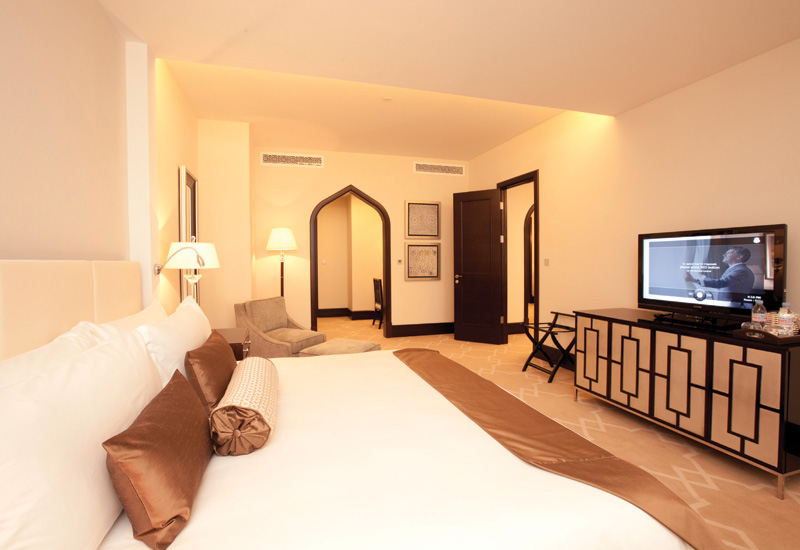 The luxury St. Regis Doha is one of the 2012 newcomers, adding 336 rooms and suites to the market in March ? it is currently seeing hot competition from other new properties in the Qatari capital city.
The luxury St. Regis Doha is one of the 2012 newcomers, adding 336 rooms and suites to the market in March ? it is currently seeing hot competition from other new properties in the Qatari capital city.
Managing rates
In April, TRI Hospitality consultant Christopher Hewlett warned Qatar hoteliers: “ADR will be the first casualty as more hotels come online”.
It’s crucial that — even when under pressure — the price is right, Markiewicz agrees, adding that there is more to it than undercutting.
“Rooms pricing has to be logical. Making it complicated isn’t making it clever. If your staff don’t understand it, then they can’t explain it to guests, and they then think that you’re trying to cheat them. You should make sure it’s seasonal and supplement executive suites, but don’t make the supplements huge, or you will probably only sell them twice a year.

| Advertisement |
“Some people mix up parity and integrity. Integrity is very important. If an online tour operator doesn’t stick to the contract they can undercut you. Clients won’t book through your site. Integrity is about having a rate barrier in every segment you sell in. Tour operators can’t sell at naked rate,” she continues.
Markiewicz says that in her opinion, a dynamic pricing structure is the way forward.
“Most people now are using dynamic rates; it can be difficult on fixed rates. Dynamic really means being able to adjust ‘best available rate’ (BAR) based on occupancy of the day and demand in the market. Dynamic rates are most certainly the way to go and everywhere online has to be sold at the same price and move at the same pace.
“If we cannot sell a rate in parity with a third party, they don’t sell it. If they cannot accommodate a promotion, we don’t sell it. It has to be compatible,” adds Markiewicz.
Paying the price
While the flurry of hotel openings in Doha has led to oversupply of rooms, the availability of employees is quite a different story.
“We’re already talking about occupancy and rates going down but costs are going up because potential employees are demanding more money and they’re getting paid it,” explains Markiewicz.
Good revenue managers — ones that have the right personality and skills to do the job — are few and far between, she says.
“How do we train and retain staff? People are important for distribution and sales. Every new hotel is looking for new teams but the resources are not available in the market. The price goes up to get the people you want to operate the hotel how you want to.
“Revenue managers have to have a balance of skills — we have to be a bit nerdy, but be able to explain and sell something the executive team doesn’t agree with. If you can’t confidently explain through numbers or facts it’s not going to work.
“I interview revenue managers every week and there aren’t many good ones around,” continues Markiewicz. “We have to develop them. There is a lack of academies — Marriott and Starwood have them, but there aren’t enough.”
While high turnovers are often associated with growing expatriate markets such as Doha, she says that ensuring open communication between departments and, as always, valuing employees can minimise loss of staff to competitors.
Article continues on next page ...








 Search our database of more than 2,700 industry companies
Search our database of more than 2,700 industry companies









